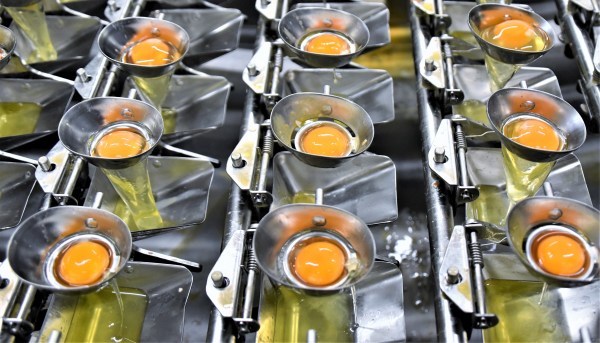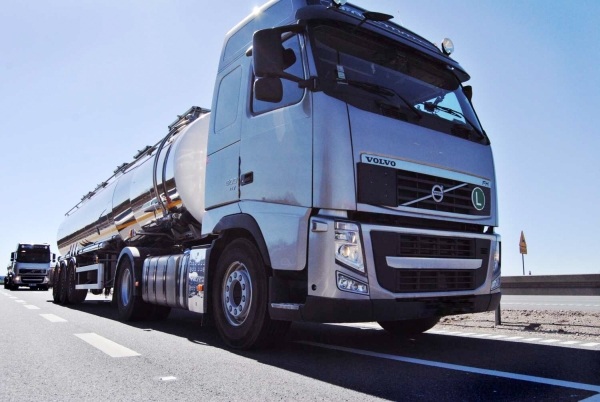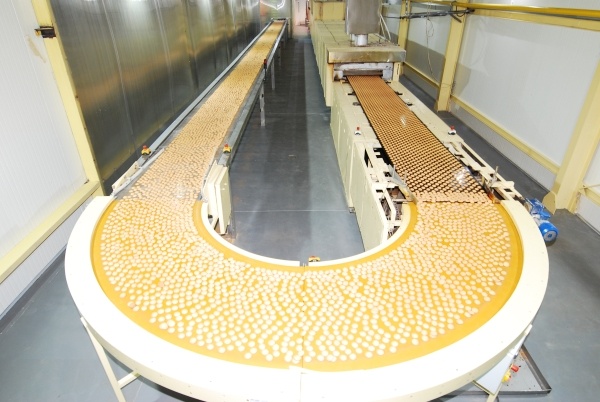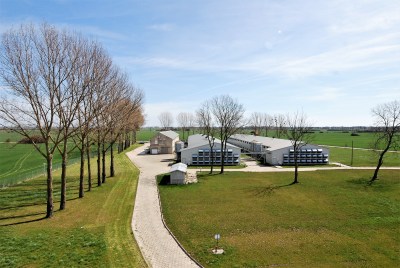
Types of egg masses
(options: sugar, salt, or other ingredients on request)
Conversion rate
- 1 kg of liquid egg contains 20–23 chicken eggs, depending on the size of the eggs
- 1 kg of liquid egg yolk contains 56–60 egg yolks
- 1 kg of liquid egg white contains 41–45 egg whites
- Storage conditions: 0–4°C
PACKAGING
For our liquid egg products, we use aseptic bag-in-box type packaging. The bag-in-box system is a very versatile technology utilising a barrier film that minimises the ability of gasses to penetrate the bag, extending the product life and freshness without adding preservatives. Our liquid egg products packaged in bag-in-box containers maintain their nutritional value and quality parameters.
- Bag volumes: 5 kg / 10 kg / 20 kg
- plastic paletobox-type packaging – up to 1,000 kg
- cylindrical stainless steel tanks – 800–1,000 kg
• OVAL also delivers egg masses in tanker trucks with a loading capacity ranging from 16 to 25 tons.
MANUFACTURING PROCESS
- Breaking eggs
The breaking of eggs is performed with the use of state-of-the-art machines. These open eggshells by means of special knives. The content of the eggs may be subject to the process of separating the yolk from white or being processed without separation.
- Filtering
The mass obtained is subject to the filtration process, due to which the remains of eggshells are removed from it. The filtration is performed in automatic filters equipped with sieves that have a minimum mesh size, which guarantees the thorough removal of all remains.
- Homogenisation – making the product uniform
The filtered product undergoes a homogenisation process, which results in a uniform mixture consisting of ingredients that do not mix under normal conditions, i.e. the yolks and whites. We apply two types of homogenisation – pressure and cavitation. Uniform structure and consistency obtained during the homogenisation process helps to perfectly combine the egg mass with other ingredients.
- Pasteurisation
All types of masses are subject to the pasteurisation process. It consists of the destruction of pathogenic microorganisms that can occur in eggs, by means of using an appropriately chosen temperature of heating for a very short time. It allows the flavour of products to be maintained, and avoids a reduction in their nutritional values. The pasteurisation process protects the consumer against being infected with bacteria (mainly Salmonella) and increases the shelf life of the product.




Recent Comments